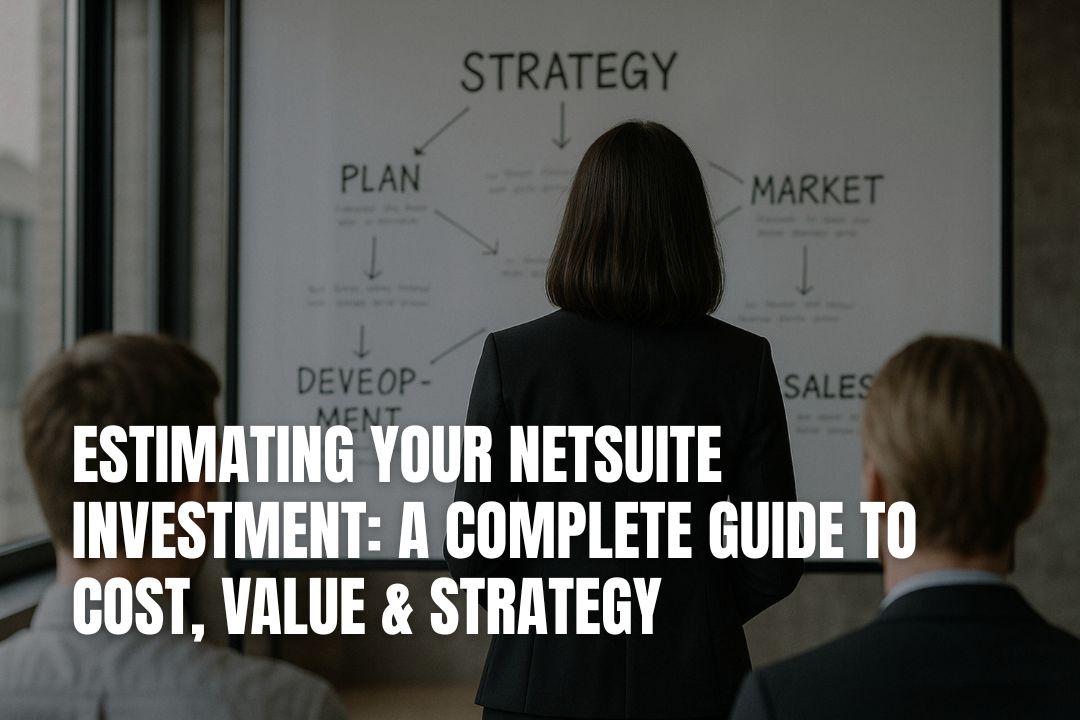
Editorial Disclaimer
This content is published for general information and editorial purposes only. It does not constitute financial, investment, or legal advice, nor should it be relied upon as such. Any mention of companies, platforms, or services does not imply endorsement or recommendation. We are not affiliated with, nor do we accept responsibility for, any third-party entities referenced. Financial markets and company circumstances can change rapidly. Readers should perform their own independent research and seek professional advice before making any financial or investment decisions.
Implementing a cloud ERP like NetSuite is one of the most impactful decisions a growing business can make. With its scalable modules, automated workflows, and real-time analytics, NetSuite can streamline operations across finance, supply chain, CRM, projects, and more. But before moving forward, companies need a clear understanding of the potential costs, long-term value, and factors that influence pricing.
When estimating your NetSuite investment, it’s essential to look beyond just the subscription fees. A successful NetSuite deployment involves licensing, implementation services, customizsation, integrations, training, and ongoing optimisation. Understanding how these components fit together helps businesses evaluate the true ROI and avoid unforeseen expenses.
NetSuite does not follow a one-size-fits-all pricing model. Instead, it scales based on your unique business requirements. Key factors include:
Every one of these components can influence both your upfront and ongoing costs.
NetSuite operates on an annual subscription model. Your subscription cost typically includes:
The more users and modules you need, the higher your annual subscription will be, but the greater the operational efficiency and automation you’ll gain.
Your implementation is a vital part of your NetSuite investment. This stage includes:
These services are delivered either through NetSuite’s own team or certified partners. Costs vary depending on project complexity, industry specifics, and the level of customisation required.
To maximize value from NetSuite, businesses should plan for:
These costs ensure the platform continues supporting your changing operations without disruption.
While NetSuite requires a meaningful investment, its ROI often becomes evident quickly. Companies benefit through:
When implemented correctly, NetSuite becomes not just a software expense but a strategic driver of efficiency and growth.
Estimating the full cost of NetSuite requires a holistic approach. By considering subscription fees, implementation costs, customization, training, and long-term optimisation, businesses can create a realistic budget that aligns with their goals. With proper planning, NetSuite delivers significant operational value and long-term scalability, making the investment worth every dollar.
No, NetSuite pricing is highly customised to fit your business. The final cost is influenced by factors like your chosen edition, the number of users, required modules, and any necessary integrations or customisations.
Your annual subscription fee typically covers the core ERP platform, the specific modules you have selected (like financials or inventory), and your user licences. Depending on the plan, it might also include a sandbox environment for testing.
Yes, implementation is generally a one-time project cost. It covers the professional services needed to configure the system, migrate your data, and get your team ready for the go-live date. It is a crucial part of your initial investment.
To maximise the value of NetSuite, you need to plan for long-term operational costs. These include ongoing user training, support, and periodic system optimisations to ensure the platform continues to meet your business needs as you grow.
You can evaluate the ROI by looking at efficiency gains and cost savings. Key benefits include faster financial closing, reduced manual processes, better inventory management, and improved reporting accuracy, all of which contribute to strategic growth.